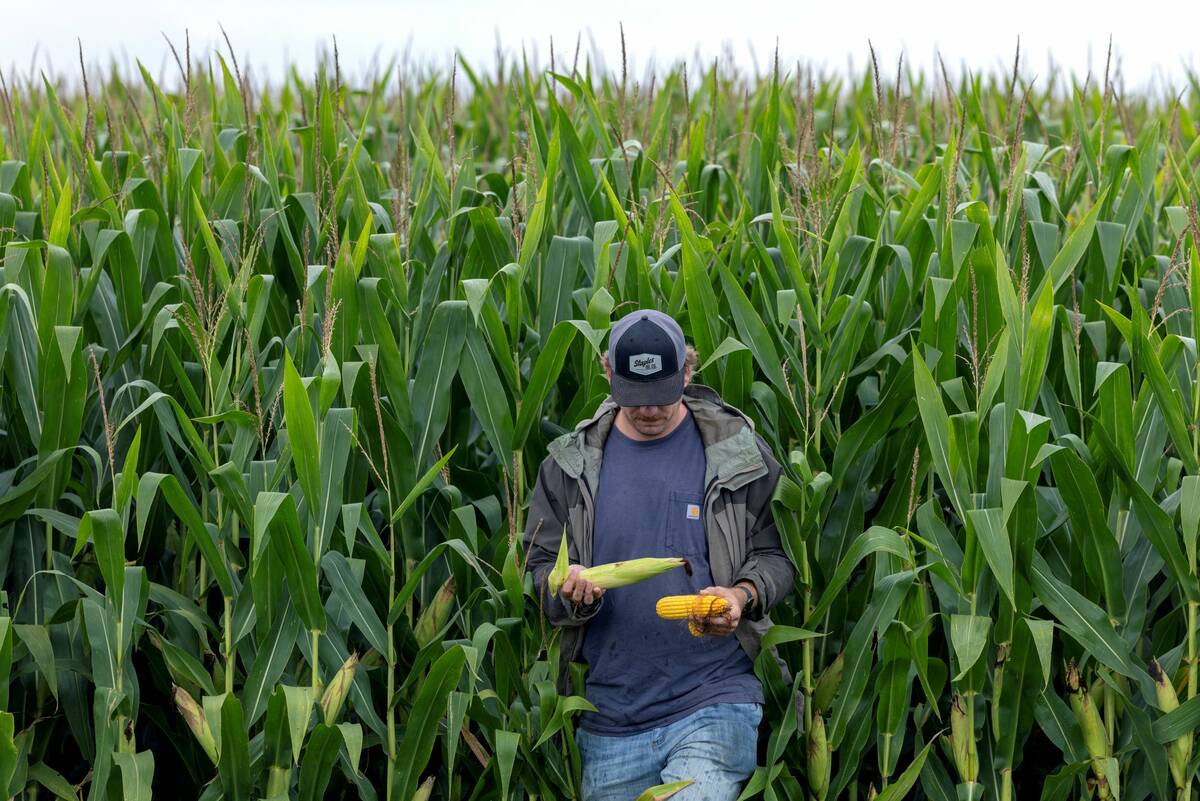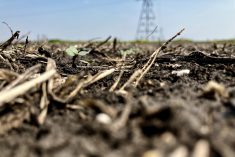CNS Canada — A multi-billion-dollar merger between two major crop input companies is the latest in a string of consolidation efforts in North America’s agriculture industry, drawing attention again to the possible effects on the value chain.
Agrium and PotashCorp announced Monday they plan to combine to create an integrated global supplier of crop inputs, in a deal expected to close in 2017.
The consolidation comes at a time when both companies have seen falling profits, and the merger will bring long-term stability to the market, said Brooke Dobni, a professor of strategy at Edwards School of Business at the University of Saskatchewan in Saskatoon.
Read Also

The U.S. corn crop could be the biggest ever. That’s terrible news for America’s farmers.
The USDA predicts a record corn crop for U.S. farmers, who question the agency’s accuracy amidst high debt and low crop prices.
“Right now, the industry is fairly unstable because of the price of the commodity,” said Dobni, who also held the PotashCorp Chair for Saskatchewan Enterprise.
Fertilizer prices have come under pressure as eastern European markets are able to provide low-cost product, he said.
Canadian farmers are concerned the merger could mean higher prices, Dobni said, but added prices should still be based on supply and demand.
“Those are the kind of things that producers would be worried about,” he said, “but I do think that prices for potash are going to remain low for some time to come.”
The biggest potential for short-term pain is for the newly-formed company, as it will be looking to manage costs, he said.
“That means less supply because there’s an overcapacity right now. Why keep putting product onto the market if it’s going to keep prices down?”
The merger could sacrifice service to producers, said Dan Mazier, president of Manitoba farm group Keystone Agricultural Producers (KAP).
When the number of companies available gets smaller, it has the potential to take away the ability for the industry or value chain to adapt, he said.
A poorly-timed weather event could cause a shortage, said Mazier, who farms at Justice, Man., northeast of Brandon.
“And how does the industry, since they’re so consolidated, how do they react to that? What happens? Who ends up losing all the money at the end of the day? It’s the farmer.”
If a situation arose that caused a lack of available fertilizer, he added, it could limit the crops farms can grow, sending them into a fragile state.
The merger will combine Saskatoon-based PotashCorp’s production capabilities, the biggest globally, with Calgary-based Agrium’s retail services, which are the largest in North America. Agrium also has a network of fertilizer plants and its own potash mine southwest of Saskatoon.
The proposed merger is subject to review by federal regulators, to determine whether it could result in a substantial lessening or prevention of competition.
“I don’t anticipate that they’ll have any difficulty passing that test,” Dobni said, adding the government doesn’t have a lot of say in company operations.
“And that would be a little bit dangerous for them to get into that area or field, because it then scares off other investment in the province.”
While consolidation in the ag retail sector is a concern for Mazier, he added “this is a Canadian company that’s trying to stay in the game. That’s the positive.”
— Jade Markus writes for Commodity News Service Canada, a Winnipeg company specializing in grain and commodity market reporting. Follow her at @jade_markus on Twitter.












